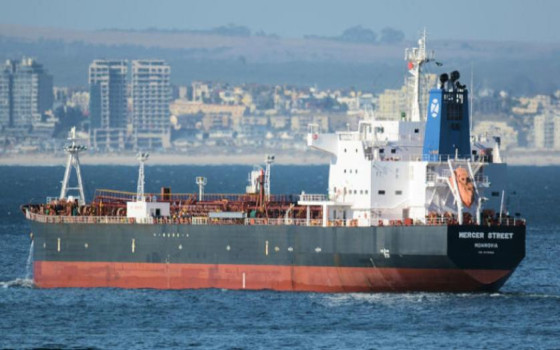
Russia circumvents European sanctions, while member states seek to calm things down with Moscow.. and the world suffers as a result of energy prices

- Europe and Arabs
- Saturday , 3 December 2022 19:21 PM GMT
Brussels: Europe and the Arabs - Agencies
A few hours after statements from Germany, the powerful country in the European Union, by German Chancellor Olaf Scholz, he said: Europe must return to the peace regime before the war with Russia, and resolve all issues of common security after the Ukraine war, if President Putin is ready to renounce aggression. on his neighbors. The British newspaper "Financial Times" publishes that Russia is creating a hidden fleet of naval oil tankers with the aim of circumventing the sanctions imposed by the West on Moscow since its military operation in Ukraine.
The article, written by Chris Cook and Paulina Ivanova, and parts of which were transmitted by BBC Arabic, indicated that “brokers and analysts in the shipping sector, including Braemar Shipping, estimate the number of ships added by Moscow, which relies mainly on foreign containers for transportation.” Crude oil, about 100 ships this year."
He added, "The energy consulting company Rystad said that Russia has added 103 oil tankers to its transport fleet since early 2022, relying on that to buy some of them and redistribute ships that are already in service from Iran and Venezuela, two countries subject to sanctions by the West."
Russia has been working hard to add dozens of sea containers to the oil transport fleet since its military operation in Ukraine with the aim of circumventing Western sanctions, which include setting a ceiling for Russian oil prices at $60 per barrel, which will come into force next Monday, which is what analysts and observers in the sector call Shipping name "Shadow Fleet".
It is also expected that the measures taken by the European Union and the Group of Seven will place more burdens on Russia and deprive it of a large amount of financing, as those countries impose a ban on major insurance companies such as Lloyd's of London, preventing them from covering containers carrying Russian oil - whatever their destination - except If this oil was sold at the maximum prices set by Western countries.
For its part, Russia has announced that it will not deal with any country that imposes a maximum price on Russian oil, which means that Russia may refuse to supply oil to those countries. Russia may have plans to use the containers it adds to the oil transport fleet to export crude to India, China and Turkey, which are the countries that have been at the forefront of Russian oil importers since Europe cut its imports from it.
The head of the Center for Energy Development in Russia, Kirill Melnikov, said that the global price of a barrel of oil may exceed $100, in the event that the European decision to renew the maximum price of Russian oil at $60 is implemented, and the possibility of reducing Russia's exports.
Melnikov added - according to the Russian "TASS" news agency, today, Saturday, that "the issue of applying the cap or setting the ceiling for the price of Russian oil will not affect Russian companies, which will not sell oil based on it in any way; as a result, Russian oil supplies through companies will stop." European shipping and insurance, which may reduce Russian exports by 1 or 1.5 million barrels per day in December and January, and this is likely to lead to a rise in prices above $100 a barrel.
And the European Union member states negotiated, on Friday, to set the maximum price for Russian oil shipped by sea, at $ 60, and the decision is now scheduled to be approved by the European Council.
Russia has stated, earlier, that it will not provide supplies to countries that will set the price cap for it, and that it considers the price cap to be unacceptable.
In a related context, Alexander Potavin, an analyst at Finam, said that the level of the negotiated price ceiling will ensure that crude oil retains a large share in the global market.












No Comments Found